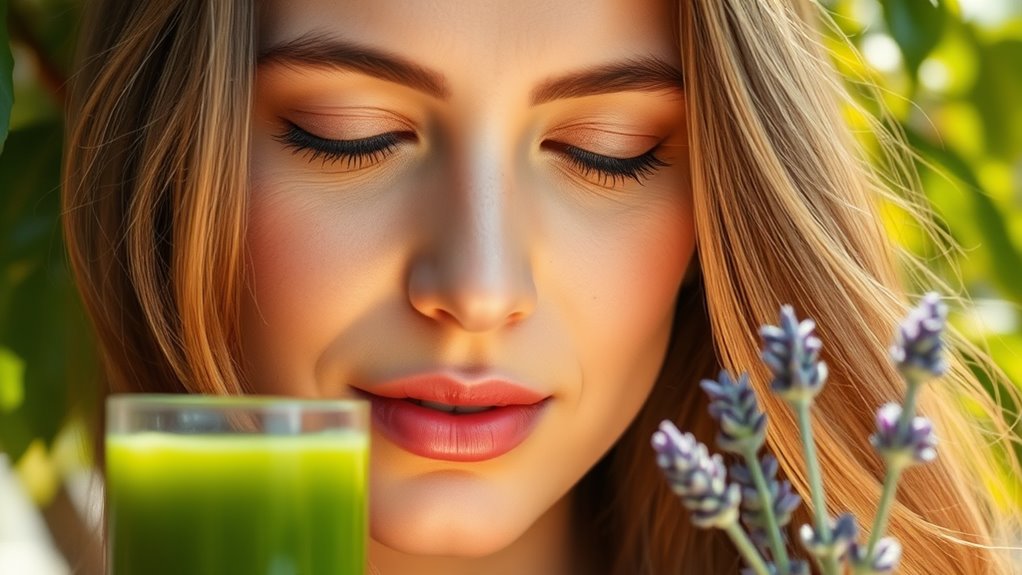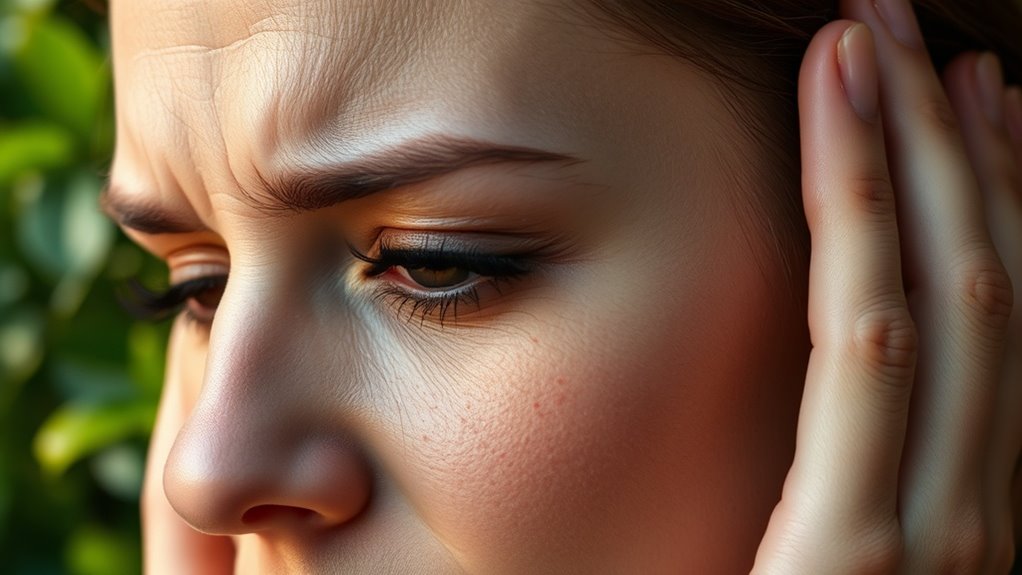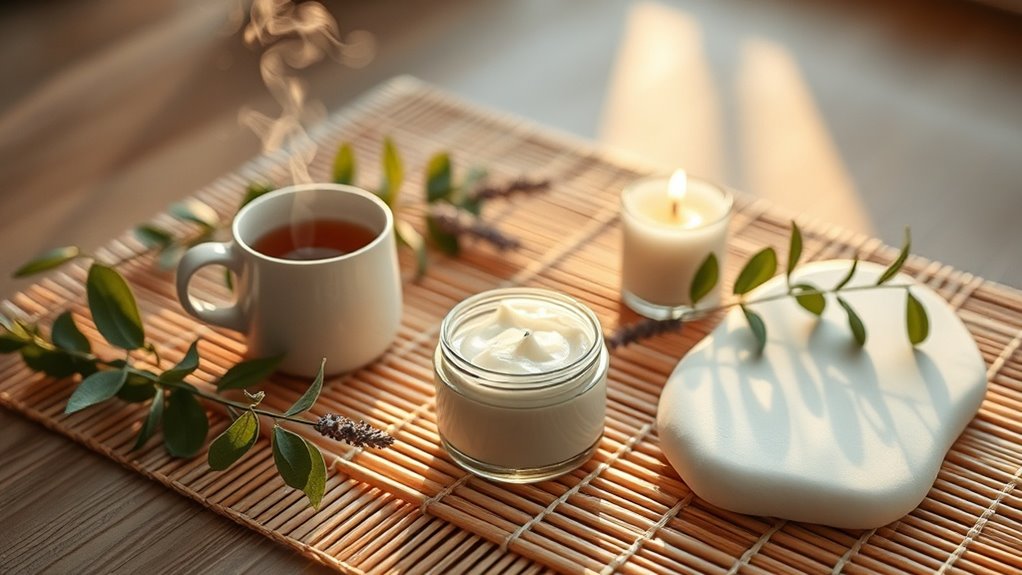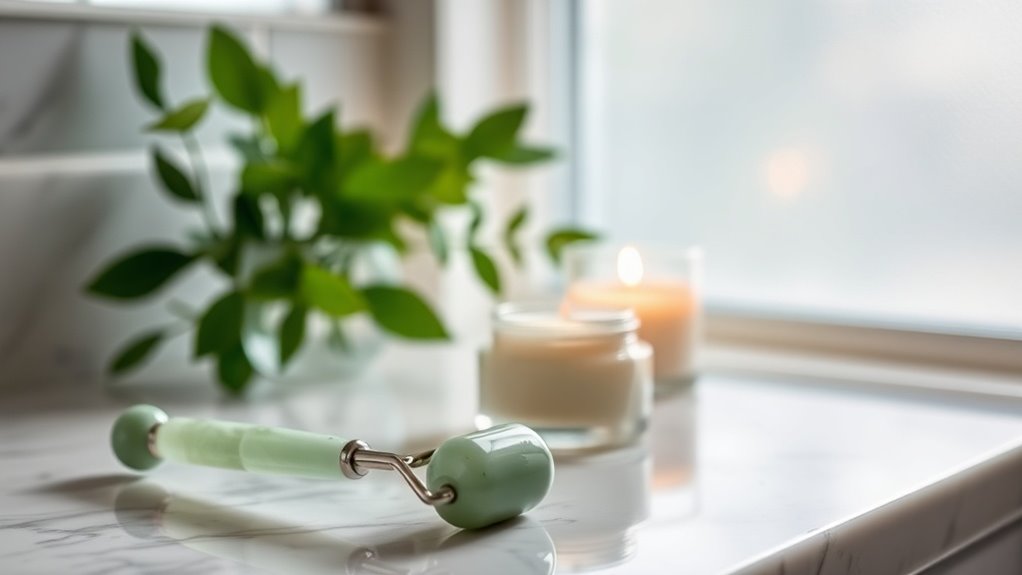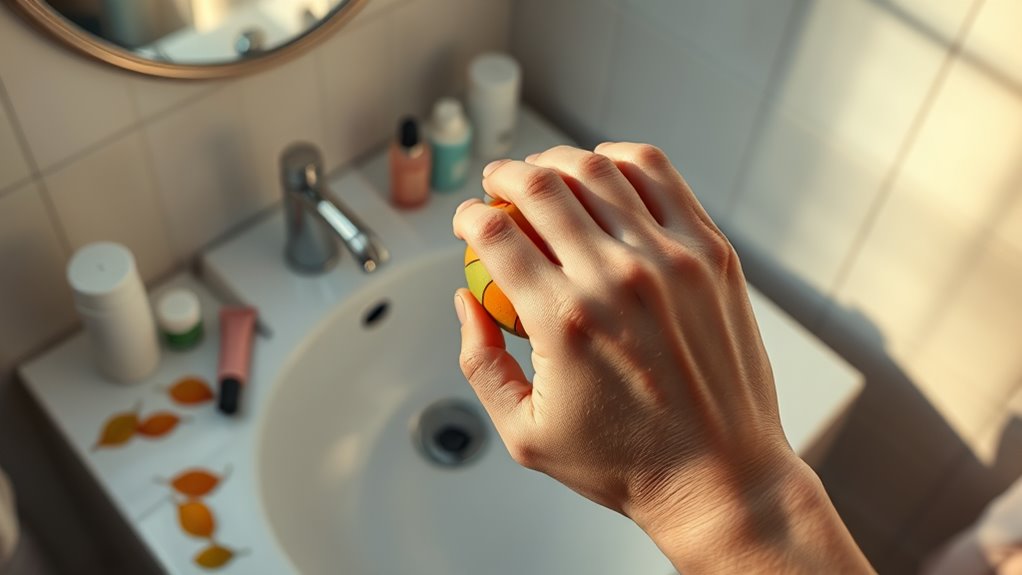Your Skin Could Be Aging From Stress – Here’s How to Fix It
Imagine your skin as a delicate fabric, fraying at the seams under the weight of stress. Research shows that elevated cortisol levels can lead to premature aging, manifesting as fine lines, redness, and dryness. If you’ve noticed these changes, it’s crucial to understand the underlying causes and explore effective strategies. What if you could reverse the signs of stress-related aging and restore your skin’s vitality? Let’s uncover the essential steps to rejuvenate your complexion.
Key Takeaways
- Manage stress through mindfulness practices like meditation to lower cortisol levels and improve skin health.
- Incorporate skincare ingredients such as Vitamin C and Hyaluronic Acid to combat signs of aging and enhance hydration.
- Maintain a consistent sleep schedule to support skin repair and rejuvenation overnight.
- Engage in regular physical activity to boost endorphins, which can improve your mood and skin appearance.
- Focus on a nutrient-rich diet with antioxidants and Omega-3 fatty acids to reduce inflammation and promote skin vitality.
Understanding the Impact of Stress on Skin Aging
Have you ever wondered how stress influences your skin’s appearance?
Stress triggers the release of cortisol, a hormone that accelerates skin aging.
Stress prompts the release of cortisol, a hormone that speeds up the skin’s aging process.
Elevated cortisol levels can lead to decreased collagen production, resulting in less elasticity and more wrinkles.
Additionally, stress often causes inflammation, which may exacerbate skin conditions like acne or eczema.
Poor blood circulation due to stress can hinder nutrient delivery to skin cells, affecting overall health.
These factors contribute to premature skin aging, making it essential to manage stress effectively. Furthermore, chronic stress can lead to ongoing skin issues, compounding the effects of aging and negatively impacting your skin’s overall resilience.
Identifying the Signs of Stress-Related Skin Damage
How can you recognize the signs of stress-related skin damage?
It’s crucial to be aware of these indicators to take action.
Here are some common signs you might notice:
-
Increased breakouts or acne
-
Dull, tired-looking complexion
-
Fine lines or wrinkles appearing prematurely
-
Redness or inflammation, especially around sensitive areas
-
Excessive dryness or flakiness
Recognizing these signs early can help you address stress’s impact on your skin. Additionally, emotional and physical stress can exacerbate these symptoms, making it vital to manage your stress levels effectively.
Effective Stress-Reduction Techniques for Healthier Skin
What if you could enhance your skin’s resilience by simply managing your stress levels?
Practicing mindfulness techniques, like meditation or deep-breathing exercises, can significantly lower cortisol levels, which helps combat stress-related skin aging.
Mindfulness practices, such as meditation and deep breathing, can reduce cortisol and fight stress-related skin aging.
Regular physical activity boosts endorphins, improving your mood and skin health.
Additionally, establishing a consistent sleep schedule supports skin repair during the night.
Incorporating relaxation practices, such as yoga or tai chi, can also help reduce tension and enhance circulation, promoting a healthier complexion.
Moreover, using soothing ingredients like chamomile or lavender in your skincare routine can further help to calm stressed skin and reduce inflammation.
Skincare Ingredients to Combat Stress-Induced Aging
As you navigate the challenges of stress, incorporating specific skincare ingredients can help mitigate its effects on your skin.
These ingredients work by enhancing hydration, promoting cell turnover, and reducing inflammation, all of which are essential in combating stress-induced aging.
Consider adding the following to your regimen:
-
Vitamin C: Boosts collagen production and brightens skin tone.
-
Hyaluronic Acid: Provides deep hydration and plumps the skin.
-
Peptides: Stimulate collagen synthesis and improve elasticity.
-
Niacinamide: Reduces redness and strengthens the skin barrier.
-
Retinoids: Promote cell turnover and diminish fine lines.
Incorporating these science-backed ingredients can lead to a more youthful appearance as they effectively target the signs of aging.
The Role of Nutrition in Skin Health and Stress Management
Can your diet really influence the aging of your skin and help you manage stress? Absolutely! Nutrients play a crucial role in maintaining skin health and reducing stress. A balanced diet rich in antioxidants, vitamins, and healthy fats can combat oxidative stress and promote skin elasticity. Additionally, incorporating essential foods can enhance your skin’s radiance and overall health. Below is a table highlighting key nutrients and their benefits:
| Nutrient | Benefit |
|—————–|——————————|
| Vitamin C | Boosts collagen production |
| Omega-3 Fatty Acids | Reduces inflammation |
| Antioxidants | Protects against free radicals|
| Zinc | Aids in skin repair |
| B Vitamins | Supports stress management |
Incorporate these into your meals for healthier skin!
Building a Holistic Routine for Radiant, Youthful Skin
How do you create a holistic routine that fosters radiant, youthful skin?
Start by integrating practices that target both physical and mental well-being.
A comprehensive approach enhances skin health and counters stress-induced aging.
-
Hydrate daily: Drink plenty of water to maintain skin elasticity.
-
Balanced diet: Incorporate antioxidants and healthy fats for cellular repair.
-
Regular exercise: Boost circulation and reduce stress through physical activity.
-
Mindfulness practices: Engage in meditation or yoga to lower cortisol levels.
-
Quality sleep: Aim for 7-9 hours nightly to support skin regeneration, as better sleep habits can significantly improve skin appearance.
Embrace these elements for optimal skin vitality.
